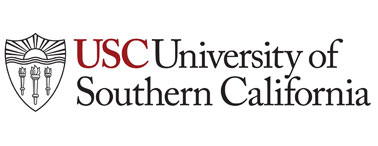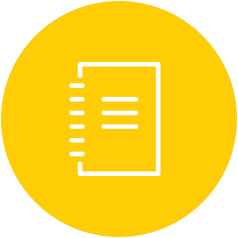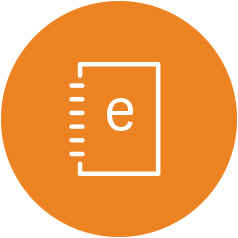Talking About USC Financial Aid
High schools and counselors are valued partners in our efforts to ensure that every student has an opportunity for a world-class education. We hope that by sharing this information, we can help your students and their families can make informed decisions about what school to attend and what types of financial aid best suits their circumstances.
Investing in the Future: The Value of a USC Education
Cost is a primary consideration for students in deciding which college to attend. And while current headlines tend to focus on cost, a college education is also an investment in a student’s future. Its value increases over time.
College graduates earn more over their lifetimes than those with just high school diplomas, enjoy greater access to healthcare.
At USC, students graduate uniquely prepared for the challenges of the 21st century. They effectively engage with other cultures and examine issues through a global perspective, draw from a multidisciplinary education that encourages them to make connections and synthesize information, and give back to their communities through real-world problem-solving—as researchers, interns, volunteers and mentors.
Investing in education, especially a USC education, not only benefits the student — it benefits everyone.
At USC, we are proud of the resources we have to offer our students. We maintain a strong commitment to funding student financial aid and administer one of the largest programs in the country:
We work with families to meet 100 percent of their demonstrated financial need.
Funding for student aid has increased at a higher rate than tuition costs every year for the last few years.
Our current Capital Campaign includes a major initiative to increase the student aid endowment by $1 billion.
Nearly two-thirds of USC undergraduates receive some form of financial aid.
USC awarded more than $814 million from all sources to undergraduates last academic year. The majority of that comprised gift aid (financial aid that does not need to be paid back).
The total gift aid to undergraduates from all sources (university, federal, state, other) for the 2022-2023 academic year was more than $657 million (more than 80 percent of all aid awarded).
Our admission process is need-blind. Ability to pay does not affect our admission decisions.
Student Debt at USC
We know that families are concerned about student indebtedness and the national dialogue about this issue has intensified. At USC:
About thirty-one (31) percent of all undergraduates borrow from federal student loan programs (does not include parent, and/or private loans).
Approximately seven (7) percent borrow from the Federal Direct Parent PLUS program.
Approximately three (3) percent borrow private loans.
Graduates from the class of 2022 who entered USC as first-time students borrowed a cumulative average of $19,413 in federal student loans.
The College Board estimates that about 54 percent of all college seniors who graduated in 2021 had student loan debt, with an average of $29,100 per borrower. (The national average includes public and private non-profit institutions.)
The Financial Aid Application Process at USC
USC requires both the FAFSA and the CSS Profile.
Students’ eligibility for USC need-based aid is calculated using Institutional Methodology, based on information provided in the CSS Profile.
Application Deadlines
First-Year Students: February 10, 2023.
Families should begin preparing as soon as possible, starting with the CSS Profile, which is available after October 1.
The FAFSA is available after January 1.
Transfer Students: March 2, 2023.
Community college students should be made aware of the CSS Profile requirement, as well as the need to file the FAFSA on time. USC needs time to determine eligibility for university need-based aid.
CAL GRANTS
California residents should also apply for Cal Grants by March 2.
Tax information
We will request actual tax returns or supporting documentation only if necessary for verification.
Most supporting documentation can be submitted via our website.
Notification
Once we receive a student’s application, we will notify the student by email if we require any other information.
Students can also check their financial aid status online by logging in to their page.
Students should submit any additional information that we requested as soon as possible to prevent any delays in receiving their financial aid summary. Materials should be submitted online.
Tools and Resources
Financial Aid Calculators
Uses institutional data to provide estimated net price information to prospective students and their families, based on a student’s individual circumstances.
NPC = Cost of Attendance (price) – grant and scholarship aid
How Financial Aid Works
This video introduces viewers to the basics of qualifying, applying for, and receiving financial aid.
Investing in Your Future
This booklet provides in-depth information about the financial aid process for prospective students and their parents.
College Navigator
This website compares individual colleges based on access, affordability and outcomes.
College Board Calculator
This tool offered by the College Board may help estimate a family’s expected out-of-pocket costs. Be sure to use the Institutional Methodology.
Bigfuture by the College Board
The College Board’s college and scholarship search tool.
Contact Us
Our dedicated team of professionals is available to help with any questions or concerns.
Phone
(213) 740-4444
Monday – Friday, 9:00 a.m. – 5:00 p.m. Pacific Time
E-mail
Email us using our form.
In Person
John Hubbard Hall (JHH) Lobby
Monday – Friday, 9:00 a.m. – 5:00 p.m.
Mailing Address
USC Financial Aid Office
University of Southern California
700 Childs Way
Los Angeles, CA 90089-0914
We also have a dedicated outreach team who attends admission events, high school and community nights, and helps with special populations. We look forward to working with you and your students in the coming year!


